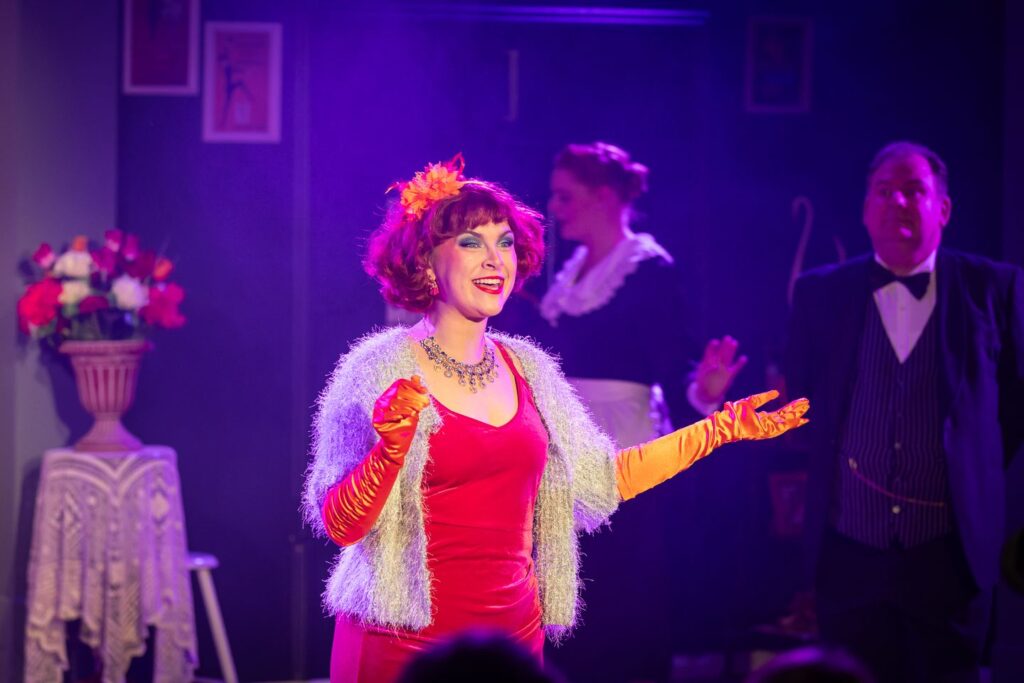
‘Cost of Living’ // Melbourne Theatre Company’
‘Cost of Living’ was prevocative.
When Ani is reunited with her estranged husband, Eddie after a devasting accident, their relationship runs an emotional rollercoaster from anger, divorce and a possible rekindling. John, an affluent PhD candidate with cerebral palsy, has no qualms about making is support worker uncomfortable about her reasons for choosing the job.
Cost of Living, by Martyna Majok’s has been staged previously in Brisbane and Sydney. Melbourne’s production of the Pulitzer award winning play comes with a whole new cast and crew. The play has no qualms about the story involving people living with a disability, two of the four cast members are people living with disability in wheelchairs. The play is an argument, a juxtaposition between living with an acquired disability and living with a congenital one.
Set in New Jersey, The Cost of Living, focuses on two separate yet also connected stories; Eddie (Aaron Pedersen) is a former truck driver, haunted by his past demons of loss, addiction, regret and grief, who finds it impossible to be on his own, and his drawn back towards his former partner Ani (Rachel Edmonds) who’s now a quadriplegic after a near fatal car accident. The toxic history of their relationship is made visceral and at times hard to watch, as Ani’s resentment of Eddie’s past behaviour and mistrusting of his offer of domestic and convalescence assistant. Questions arise about Eddie’s motives, is he trying to absolve himself of his sins or his guilt? Is love still bubbling under the surface between them? Or has desperation and loneliness brought up emotions that should be long forgotten?
The second narrative introduces us to Jess, (Mabel Li), a struggling college student, barely making enough money working in late night bars to pay the rent, takes on the position of carer to John (Oli Pizzey Stratford), a wealthy, yet lonely, PhD candidate with cerebral palsy. John puts Jess through a tortuous interview process of passive aggressiveness, self-pity and classism bubbling under John’s acerbic tone.
Jess’ story is a common and relatable one. A woman from an Asian background, first in her family to be born in the United States. The dynamic between Jess and John dances between employer and servant, carer and patient, friend and would-be lover. There’s a lot of blatant intersections between poverty, race, privilege, elitism and perception, when John discovers that a lot of her wages are sent back home to support her family. John is disabled. However, he is also privileged, arrogant, white, rich and part of the elite. It is extremely apparent that her wages, her possible entrance into a better life are extremely dependent on his favour.
Cost of Living alternates between these two storylines, with parallelisms in the way both couples navigate the responsibilities of care with the individual need for autonomy. The revolve set by Matilda Woodroofe depicts both households: John’s slick, stylishly furnished apartment and the less salubrious surrounds of Ani’s beige living quarters. (With cheerful naiveté Eddie implores her to paint them yellow for a dopamine hit.)
The cast flourish in their roles, with gravitas, poignancy, maturity, depth and humour. Despite the dark and harrowing themes of the play, an earthy and relatable comic streak is never far from the surface. Pederson’s Eddie is loud, gruff, salt-of-the Earth, a very relatable and extremely flawed figure that we are all familiar with. He is compassionate, kind-hearted, disloyal, out-of-his-depth in a lot of the ways.
His emotions and his baggage both internal and external sometimes are too close to the surface, almost to the point that he is often too weepy, almost narcissistically trying to get Edmonds’ Ani’s emotional attention, while he is supposed to be caring for her. Ani is understandably overwhelmed by her own frustrations, her own circumstances and Eddie’s behaviour. Edmond’s portrayal of Ani is extremely harrowing to watch as she comes to term with her bodily functions and her previous life; career, relationships, interests that are now a haunting memory. There are a lot of questions about our day-to-day existence that are raised by the scenes with Ani and Eddie; how much do we take for granted the act of sitting in a bath, of walking, of running, of our own independence?
The honesty that Li’s Jess shows in at first being un-sure of how to deal with John’s disability, how to refer to him as ‘differently abled’, though highly educated and seemingly privileged
The cast handle their respective roles with heart and gravitas though there are moments of humour that break through. Fully occupying the contours of their characters, as Eddie, Pedersen is gruff and loud but with a sensitivity so close to the surface that means he is often weepy, as Ani, Edmonds is understandably frustrated, “pissed and sad” about losing access to bodily functions she’d previously taken for granted, as Jess, Li is unsure at first of how to treat someone “differently abled” and though highly educated, Stratford as John is proud, arrogant and resistant to most of the underlying emotion that Jess is trying not to show.
It’s only really towards the end of the play that both narratives connect, in a rather forced way, which kind of drags on the story a little bit too long. The penultimate scene had more punch as a final scene. Eddie and Jess meet at the end, but their encounter seems too late in both characters arcs to have any real impact. It borders on saccharine and waters down the impact on so many of the scenes that are leading up to that point. Some stories work better when they’re unresolved. As it can lead to a greater emotional impact. Not every thread needs to lead somewhere.
It’s only toward the end that the two storylines intersect in a way that seems a little too neat and resolved.
It’s a great credit to both Majok and the director Anthea Willaims that Cost of Living never hides from the realities of living with a disability, and the realities of carers and the loved ones of people with disabilities. Sexuality and sex; relationships, pettiness, humour and humanity are portrayed in this play that seldom see anywhere in movies, books and Television these days. The daily chores: shaving, bathing, dressing, eating, showering, masturbation, nothing is taboo in this play, nor should it be.
However, there is a softness, a vulnerability and honesty of the human condition that at times almost make you cry, then make you pissed off with the characters and then you are laughing the next moment. Some heart wrenching and terrifying moments are almost too much to bear but that’s what makes great theatre. You can’t look away.
It’s a credit to Majok and director Anthea Williams that Cost of Living does not shy away from depicting the actual physical demands that require daily assistance: the showering, shaving, bathing and getting dressed. The vulnerability, tenderness and awkwardness on show are so intimate it’s hard for the audience to look – but look we must, if only to understand the everyday realities required to prevail for those who are disabled.
Majok pulls her punches when it comes to the implied power imbalances between the characters, especially between John and Jess. It’s not the point of the play, but it is an important point to make. Majok’s writing goes off into weird un-requited love, quasi-rom-com territory between John and Jess which leads the narrative down a different path for a little too long. Then jumping back to Eddie and Ani almost rekindling their previous relationship in a mirroring effect that seems to work better with Ani and Eddie who have the previous relationship to bounce off, rather than misunderstandings and misinterpreted romantic conversations.
‘Cost Of Living’ performed until October 19th. For more information visit their website.






